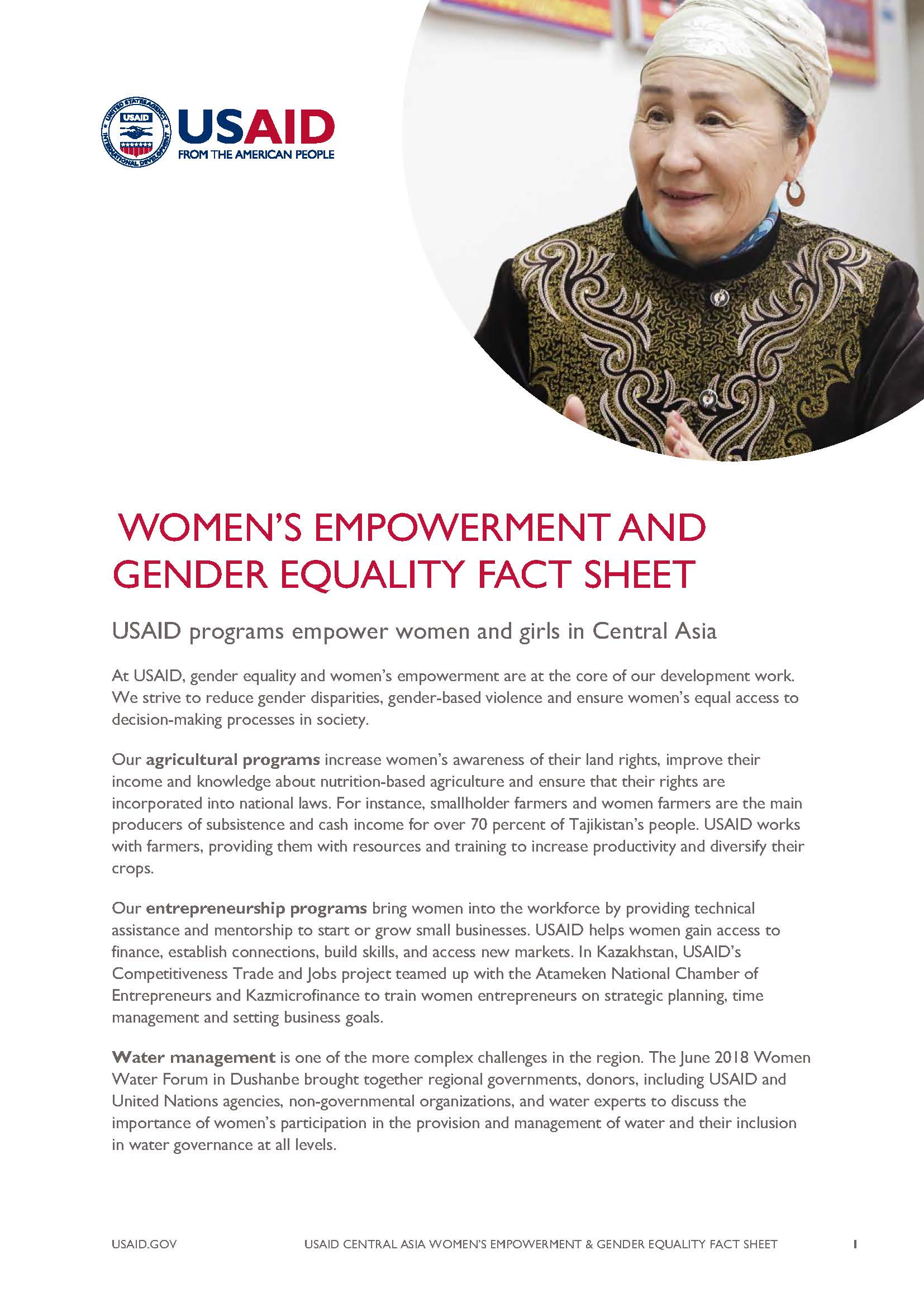Speeches Shim
USAID programs empower women and girls in Central Asia
Women's Empowerment and Gender Equality Fact Sheet ![]() (pdf - 169k)
(pdf - 169k)
At USAID, gender equality and women’s empowerment are at the core of our development work. We strive to reduce gender disparities, gender-based violence and ensure women’s equal access to decision-making processes in society.
Our agricultural programs increase women’s awareness of their land rights, improve their income and knowledge about nutrition-based agriculture and ensure that their rights are incorporated into national laws. For instance, smallholder farmers and women farmers are the main producers of subsistence and cash income for over 70 percent of Tajikistan’s people. USAID works with farmers, providing them with resources and training to increase productivity and diversify their crops.
Our entrepreneurship programs bring women into the workforce by providing technical assistance and mentorship to start or grow small businesses. USAID helps women gain access to finance, establish connections, build skills, and access new markets. In Kazakhstan, USAID’s Competitiveness Trade and Jobs project teamed up with the Atameken National Chamber of Entrepreneurs and Kazmicrofinance to train women entrepreneurs on strategic planning, time management and setting business goals.
Water management is one of the more complex challenges in the region. The June 2018 Women Water Forum in Dushanbe brought together regional governments, donors, including USAID and United Nations agencies, non-governmental organizations, and water experts to discuss the importance of women’s participation in the provision and management of water and their inclusion in water governance at all levels.
Our energy programs improve women’s participation in the energy sector by providing training, demonstrating career opportunities, addressing gender inequality and ensuring women’s leadership and improved capacity in this sector.
Our governance programs are working together with local governments to increase women’s participation in decision-making at local and national levels and to improve the government’s response to issues concerning women. USAID works with partners to advance the protection of human rights in Central Asia, both as an issue of public policy and civic culture.
Media in Central Asia rarely features the voices of women and minorities as decision-makers and narrators of their own stories. Women are also affected by information inequality. Our media programs aim to develop a more balanced information environment in Kazakhstan, Tajikistan, and Uzbekistan to increase openness among youth and adults on a broad range of ideas, opinions and perspectives and create inclusive media environments for women and girls.
Our Regional Safe Migration project in Central Asia will assess the experience of different genders in relation to vulnerabilities to internal and external trafficking; cultural perceptions and stigma; social, political, and economic barriers for women’s leadership and engagement.
All Central Asian countries, except Turkmenistan, are ranked among the 30 highest-burden countries for multi-drug resistant tuberculosis globally. Our health programs support a gender-sensitive, multi-pronged approach to managing tuberculosis (TB) in women that includes integrating TB into maternal and child health and primary health care services and providing gender sensitivity training to health care workers.
The USAID-funded Read with Me education program in Tajikistan addresses gender implications, embedded gender issues and promotes gender equality. The program aims to support 75 percent of schoolteachers and students nationwide in the upcoming years and is strongly committed to ensuring that girls succeed and stay in school.


Comment
Make a general inquiry or suggest an improvement.